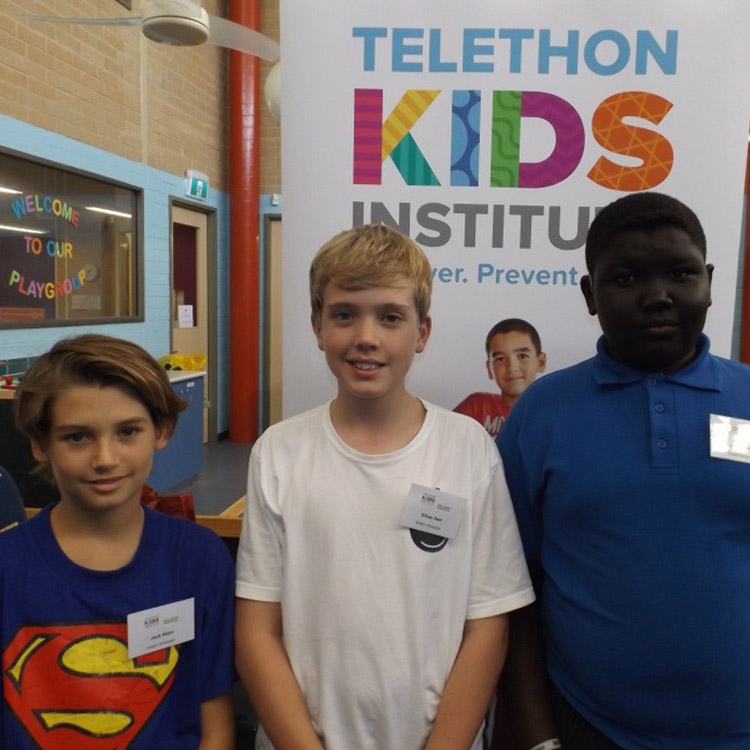Search

News & Events
Project helps Ethan belongEthan recently took part in Belong, a study led by The Kids which aims to ensure deaf and hard of hearing kids have a happy & positive school experience

News & Events
Australian Early Development Census National ConferenceThe Australian Early Development Census National Conference 2015 will be held from 18-20 February 2015.
News & Events
Child and Family Centres providing important support for parentsTasmania's Child and Family Centres are having a positive impact on parent's use and experiences of services and supports for young children

News & Events
Key study unveils significant link between hospital admissions and kids with ADHDNew research from The Kids Research Institute Australia has revealed a significant link between kids with severe ADHD and higher rates of early childhood hospital admissions.
News & Events
$2 million boost to child development researchResearchers at Perth's The Kids for Child Health Research have been awarded a prestigious Australian Research Council linkage grant
News & Events
Parental fear leads to inactive 'cottonwool' kids: studyParental fear leads to inactive 'cottonwool' kids. Children's development and wellbeing are under threat because their parents are fearful of strangers
News & Events
Alarming increase in drug affected newbornsA new Australian study has found that the number of newborns suffering serious drug withdrawal symptoms is now more than 40 times higher than in 1980.
News & Events
Mixed results for late talking toddlersFindings from the world's largest study on language emergence have revealed that one in four late talking toddlers continue to have language problems at age 7
Research
Does Child Care in the First Year of Life Pose a Risk for Concurrent and Future Ear Infections?The longitudinal analyses found no evidence of increased (or decreased) long-term risk of ear infections in subsequent waves associated with attending a child care centre
Research
Measuring early childhood development in multiple contexts: the internal factor structure and reliability of the early Human Capability Index in seven countriesFindings support the aims of the early Human Capability Index in being adaptable and applicable for use within a range of low and middle income countries
